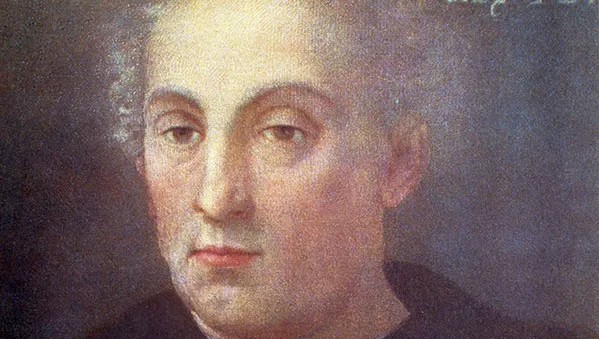Christopher Columbus, the Italian explorer and navigator, is a pivotal figure in world history whose voyages to the Americas in the late 15th century initiated European exploration and colonization of the New World. Born in Genoa around 1451, Columbus developed a passion for seafaring and navigation at a young age.
In 1492, after years of seeking sponsorship, Columbus secured funding from the Spanish monarchs Ferdinand and Isabella for his ambitious westward voyage to reach Asia. With three ships—the Niña, the Pinta, and the Santa María—Columbus set sail on August 3, 1492. On October 12, he landed on an island in the Bahamas, believing he had reached the East Indies. This voyage, and his subsequent three expeditions, led to the European discovery of the American continents.
Columbus’s voyages had profound and far-reaching consequences. They initiated the Columbian Exchange, a widespread transfer of plants, animals, culture, human populations, technology, and diseases between the Old and New Worlds. This exchange dramatically altered both ecosystems and human societies on a global scale.
While long celebrated as a brave explorer who “discovered” the New World, Columbus’s legacy has become increasingly controversial in recent decades. Critics argue that his expeditions led to the exploitation and decimation of indigenous populations through violence, enslavement, and the spread of diseases. His governance of the lands he claimed for Spain was marked by brutality and oppression.
Columbus’s treatment of the native Taíno people of Hispaniola (modern-day Haiti and the Dominican Republic) was particularly harsh. He imposed heavy tributes, enslaved many, and responded to resistance with extreme violence. These actions set a precedent for the often brutal European colonization of the Americas that followed.
Despite the controversy surrounding his legacy, Columbus’s voyages undeniably changed the course of world history. They opened up the Western Hemisphere to European exploration, colonization, and exploitation, leading to the creation of vast empires and the reshaping of global power dynamics.
Today, Columbus remains a complex and divisive historical figure. While some still honour him as a brave explorer who expanded European knowledge of the world, others view him as a symbol of colonialism and indigenous oppression. This ongoing debate reflects broader discussions about how we interpret and commemorate historical figures whose actions have had both momentous and devastating consequences.
newshub



Recent Comments